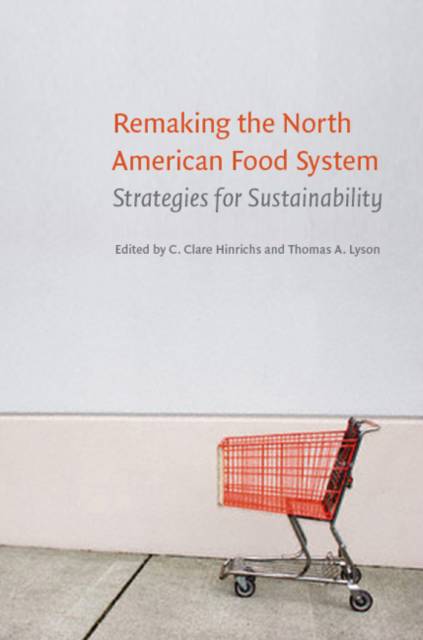
- Afhalen na 1 uur in een winkel met voorraad
- Gratis thuislevering in België vanaf € 30
- Ruim aanbod met 7 miljoen producten
- Afhalen na 1 uur in een winkel met voorraad
- Gratis thuislevering in België vanaf € 30
- Ruim aanbod met 7 miljoen producten
Zoeken
Remaking the North American Food System
Strategies for Sustainability
€ 55,95
+ 111 punten
Omschrijving
Food and agriculture are in the news daily. Stories in the media highlight issues of abundance, deprivation, pleasure, risk, health, community, and identity. Remaking the North American Food System examines the resurgence of interest in rebuilding the links between agricultural production and food consumption as a way to overcome some of the negative implications of industrial and globalizing trends in the food and agricultural system. Written by a diverse group of scholars and practitioners, the chapters in this volume describe the many efforts throughout North America to craft and sustain alternative food systems that can improve social, economic, environmental, and health outcomes. With examples from Puerto Rico to Oregon to Quebec, this volume offers a broad North American perspective attuned to trends toward globalization at the level of markets and governance and shows how globalization affects the specific localities. The contributors make the case that food can no longer be taken for granted or viewed in isolation. Rather, food should be considered in its connection to community vitality, cultural survival, economic development, social justice, environmental quality, ecological integrity, and human health.
Specificaties
Betrokkenen
- Uitgeverij:
Inhoud
- Aantal bladzijden:
- 384
- Taal:
- Engels
- Reeks:
Eigenschappen
- Productcode (EAN):
- 9780803224384
- Verschijningsdatum:
- 1/01/2008
- Uitvoering:
- Hardcover
- Formaat:
- Genaaid
- Afmetingen:
- 165 mm x 235 mm
- Gewicht:
- 698 g

Alleen bij Standaard Boekhandel
+ 111 punten op je klantenkaart van Standaard Boekhandel
Beoordelingen
We publiceren alleen reviews die voldoen aan de voorwaarden voor reviews. Bekijk onze voorwaarden voor reviews.










